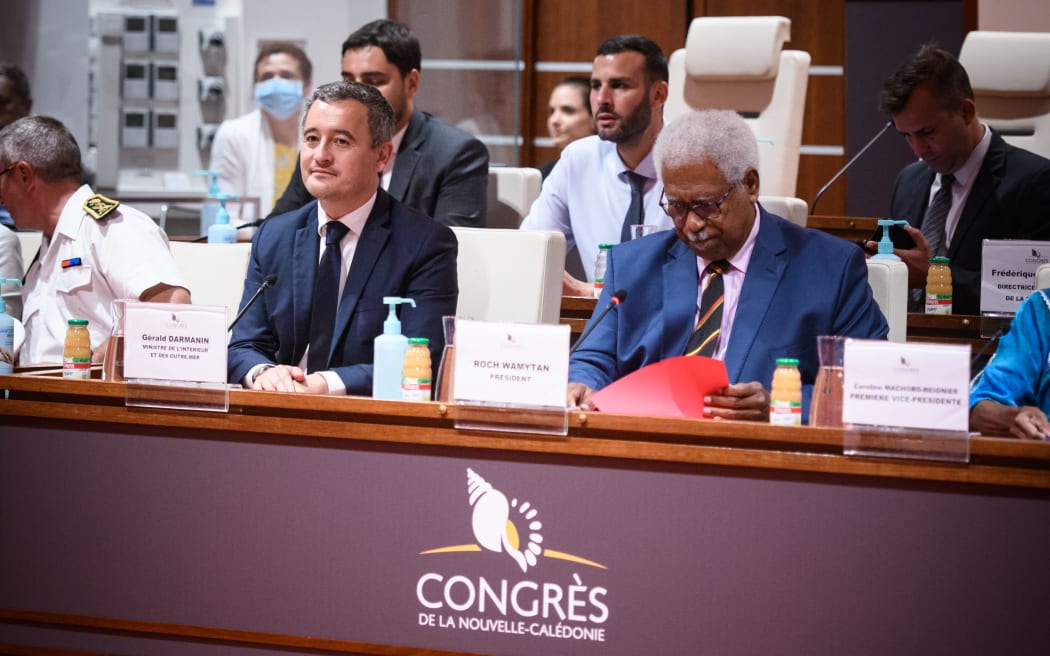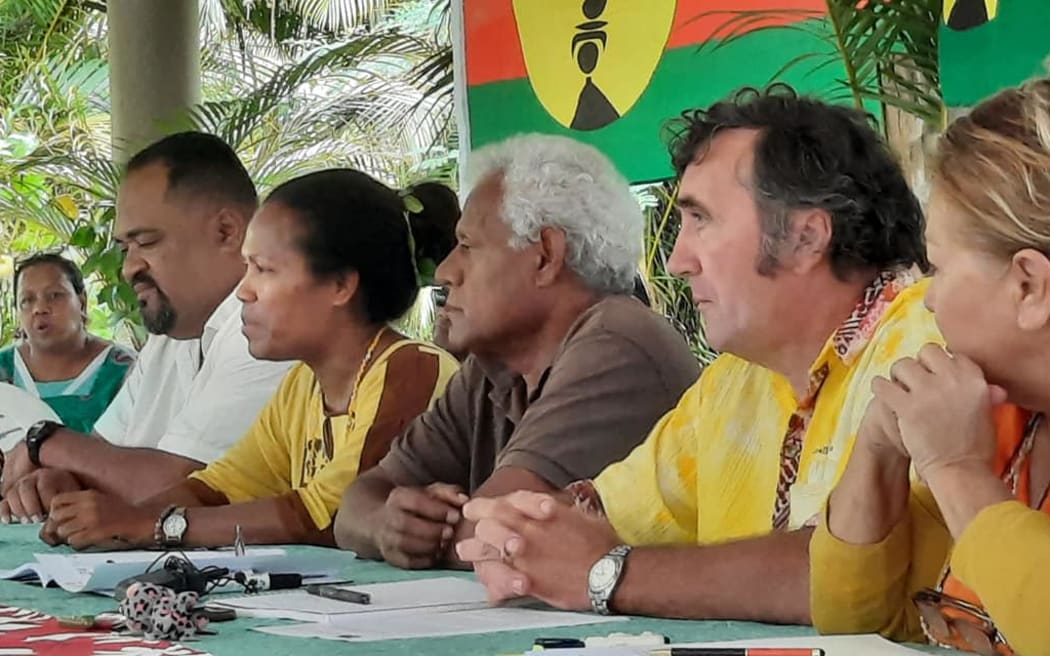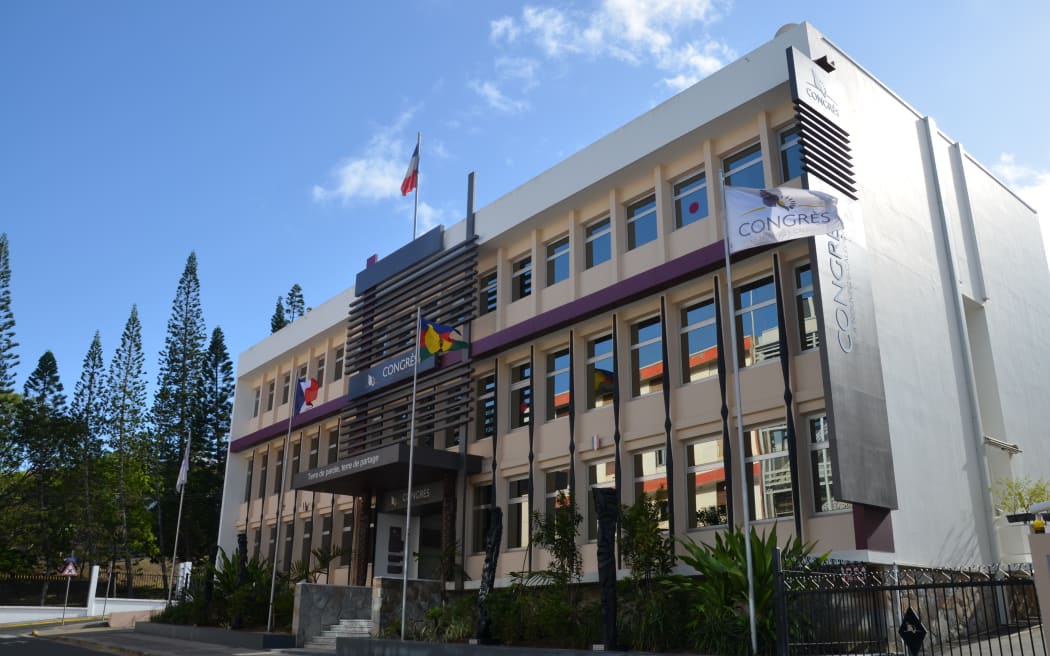
Gerald Darmanin with Roch Wamytan, the President of the Congress of New Caledonia Photo: DELPHINE MAYEUR/AFP
The French interior minister Gerald Darmanin has wrapped up a week of wide-ranging talks in New Caledonia trying to advance work on a new statute for the territory.
The meetings with various pro-independence parties stood out as the first top-level contact between them and Paris since last December's referendum when full sovereignty was rejected.
The vote marked the conclusion of the decolonisation process under the 1998 Noumea Accord, requiring all stakeholders to discuss a way forward.
Darmanin listened to the views of all sides concerned, and he left Noumea with an indication he might return in early 2023.
Earlier French plans to have a new statute ready for a vote by June 2023 were already unrealistic earlier this year, and hopes of driving the agenda without consent from the pro-independence side have further faded.
Darmanin acceded to the wishes of pro-independence parties to initiate bilateral talks once their umbrella organisation, the FLNKS, has held its congress in January.
The FLNKS wants its member parties to arrive at a united position for talks with Paris on how to restore the territory's sovereignty.
The Caledonian Union said its discussions would only be about a timetable to achieve independence while the Palika party suggested an arrangement amounting to shared sovereignty.
The Union has been adamant that it won't recognise the December 2021 referendum outcome, describing it as a humiliation of the Kanak people.
Because of the covid-19 pandemic's impact on the Kanak population last year, the pro-independence parties had asked France to postpone the referendum to 2022, but Paris refused.
As a consequence, the vote was widely boycotted, and turnout plummeted to below 44 percent.
Speaking on New Caledonian television and alluding to the football World Cup, Darmanin ruled out a replacement referendum, saying there would be "no rematch" but conceding the French constitution gave New Caledonia the right to self-determination.

Senior members of the FLNKS Photo:
At the start of his visit, the minister said a choice was made in the referendum to stay in the French Republic and that had to be respected.
In October, the French prime minister Elisabeth Borne hosted talks with New Caledonian leaders in Paris to launch the post-referendum process, but the pro-independence parties decided to stay away.
She used the occasion to announce the formation of working groups, including one dealing with the institutional future of New Caledonia.
In Noumea, Darmanin accepted the pro-independence parties' stance that their participation could only be considered once the bilateral meetings had been held.
There is no timetable for when such work will be launched, yet for the anti-independence camp a revised statute should be in place for the 2024 provincial election.
The pro-French parties have said that by then the restricted electoral must be opened to all French citizens, given the last referendum meant that New Caledonia remained French.
Pro-independence parties are firmly opposed to such a change. For them, the ringfencing of the electorate is an irreversible gain attained through the Noumea Accord.
To make changes to the electoral system, the French constitution, where the Noumea Accord is enshrined, needs to be revised. But, to date, there has been no signal of what the French government might do.
Pressure though is building to find a consensus, allowing for a new statute to be drawn up.
Any new proposed statute will then have to be put to a vote to come into effect. All this needs to be worked through by 2024.
Failing that, the provisions of the 1998 Noumea Accord remain in place.

New Caledonia Congress building Photo: RNZ Pacific/ Walter Zweifel


